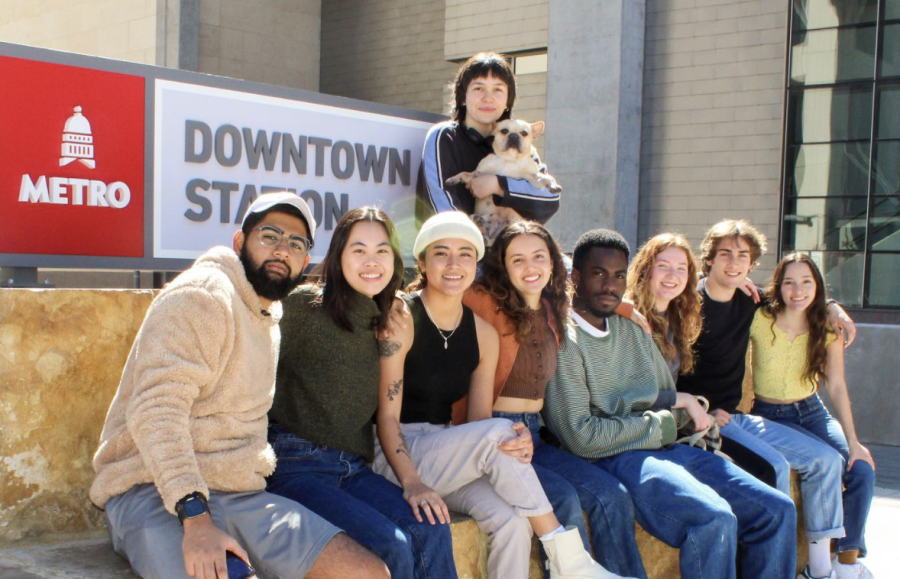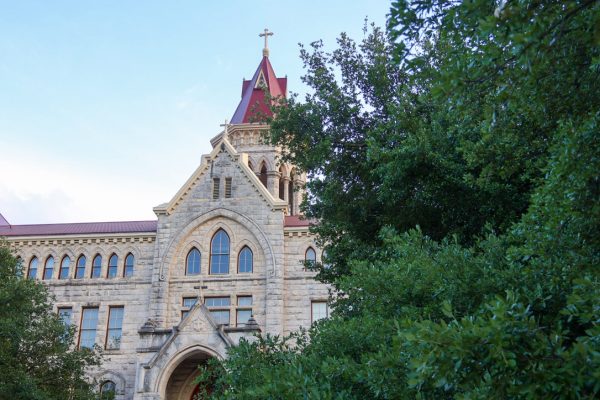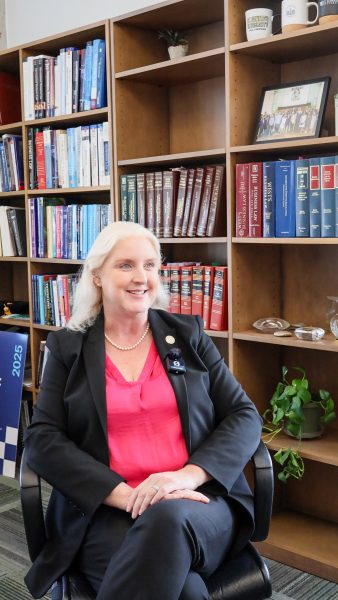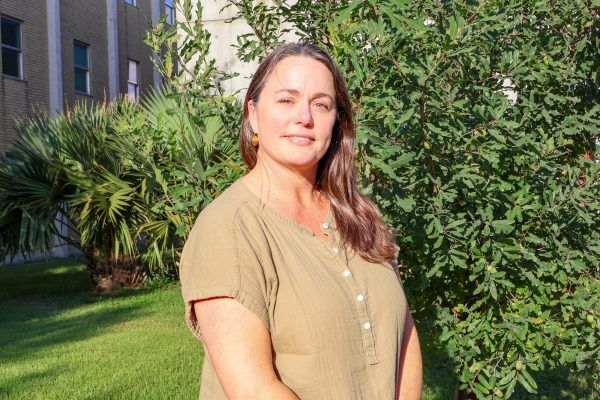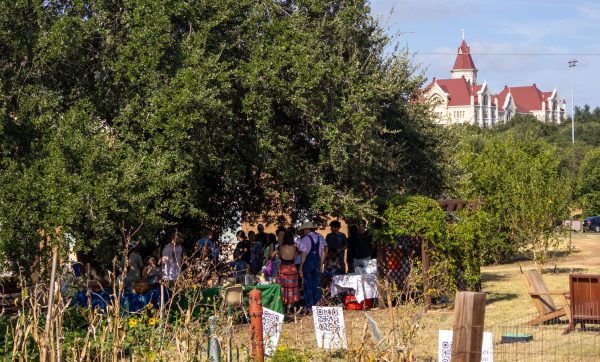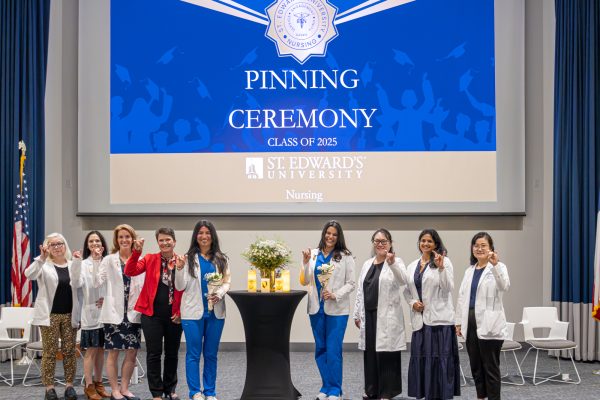Texas Civic Impact Council encourages St. Edward’s students to help enact change in Austin
Courtesy of Texas Civic Impact Council / Instagram
TCIC’s latest Student Fellowship focuses on inclusive transportation in downtown Austin. One of the ways TCIC is getting involved with community engagement is by working alongside Capital Metro on Project Connect.
One student-run organization at the University of Texas Austin is working to get students involved in community building.
The Texas Civic Impact Council (TCIC) began in 2020 after Vaishnav Kuruvanka, one of the founders, noticed a lack of interaction between the students from different disciplines at his school.
“I heard all these great things about UT before I transferred from (the University of Houston), like how there were a lot of smart people and that Austin was a great city,” Kuruvanka said. “But when I got here, while some of that stuff was true, I noticed that people didn’t really talk to each other. I asked myself, ‘Why don’t the business people talk to the fine arts people?’”
Kuruvanka, along with co-founder Ruth Merwhinney, started the council with the goal of sparking interdisciplinary collaboration between students. They also wanted to empower students to go out in the community and “adapt to the needs of Austin,” Mewhinney said.
The council’s primary goal for this year is to help guide the development of Capital Metro’s Project Connect, a $7.1 billion public transportation expansion project. They plan to achieve this by speaking to community members to discover how they want the project to benefit their part of the city.
One proposed part of the project is the Orange Line, a 20-mile light-rail line that would provide transportation from North Austin to the St. Edward’s campus and beyond.
Throughout 2020 and 2021, the council worked on the Small Business Initiative. Members of the council offered free tech consultation to small businesses in Austin, with a focus on businesses owned by people of color, according to their portfolio. To date, the program has served about 25 businesses across the state.
Currently, the council consists of 18 students from the nine schools at the University of Texas at Austin.
While councilmember positions are only open to UT students, St. Edward’s students can still work with the council to enact change in the city. Kuruvanka hopes St. Edward’s students would help represent the diversity of the city and may be able to conduct community outreach in ways or in communities UT cannot access as easily.
“For a long time, students have been left out of the decision-making process, to the detriment of Austin,” he said.
Students interested in TCIC’s work and who want to get involved should apply for one of the council’s Student Fellowships this summer. Information about the program can be found on the Texas Civic Impact Council’s website. Additionally, students who aren’t able to commit to a fellowship are encouraged to provide feedback to the council through email, [email protected], and follow them on Instagram, @peac.tcic.


